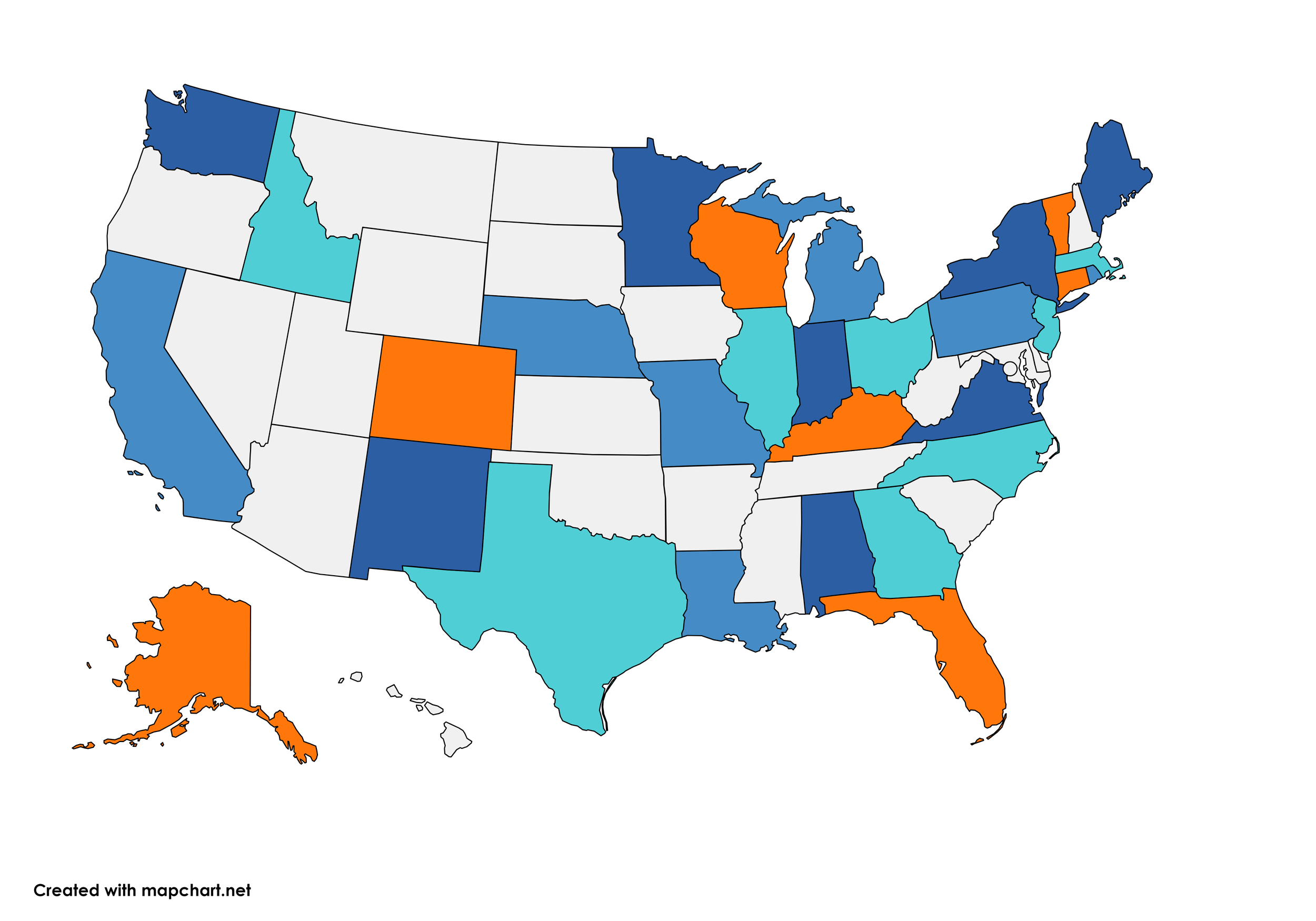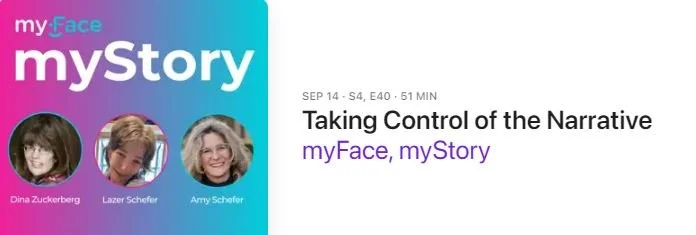In The News
Publications
-
Read the article here: https://pubmed.ncbi.nlm.nih.gov/35382590/
-
Read the article here: https://pubmed.ncbi.nlm.nih.gov/37248561/
-
Article Title: A Conceptual Thematic Framework of Psychological Adjustment in Caregivers of Children with Craniofacial Microsomia
What was the Goal of the Study?
The CARE research team wanted to learn more about how taking care of kids with craniofacial microsomia (CFM) affects caregivers. Their main goals were to learn about caregivers' experiences and the emotional changes they go through while caring for a child with CFM.
How was the Study Completed?
The team talked to caregivers all over the United States and asked them to share their experiences. Instead of asking specific questions, participants could talk about what mattered most to them. Key themes across caregivers’ interviews included their experience of the Diagnosis and Early Care, their Child’s Health and Healthcare Experiences (such as feeding, the burden of medical appointments, and making decisions about treatment), their Child’s Development (such as receiving support at school, their child making friends, and their child’s emotional well-being), and Family Well-Being (such as caregivers’ own well-being and coping strategies). Caregivers also identified a series of particularly positive and negative points throughout their journey and identified Psychological Support and Comprehensive Information about CFM to be key priorities for future research.
What are the Key Takeaways?
Multiple common themes were found in the experiences of participants. Many caregivers had difficult experiences with how they found out about their child’s diagnosis, their child's health and healthcare, and family life. The CARE team used these discoveries to make a “framework” (or “roadmap”) to help better understand the emotional adjustments many caregivers of children with CFM may make, in hopes of improving care in the future.
Stock N, Costa B, Parnell J, Johns A, Crerand C, Billaud Feragen K, Stueckle L, Mills A, Magee L, Hotton M, Tumblin M, Schefer A, Drake A, Heike C. A conceptual thematic framework of psychological adjustment in caregivers of children with craniofacial microsomia. Cleft Palate Craniofacial Journal. In press, 2024.
Full article here: https://pmc.ncbi.nlm.nih.gov/articles/PMC11458819/
-
Article Title: Early Experiences of Parents of Children with Craniofacial Microsomia
What was the Goal of the Study?
The CARE research team wanted to learn more about how caregivers of children with craniofacial microsomia (CFM) felt about their child’s early healthcare. Specifically, they wanted to uncover challenges and/or barriers families and individuals with CFM faced to guide care in the future.
How was the Study Completed?
The team talked to caregivers all over the United States and asked them to share their experiences. Instead of asking specific questions, participants could talk about what mattered most to them. Two main themes: Stressors, which are the challenging parts of diagnosis and early healthcare, and Finding Strength, which is how parents dealt with these challenges in different ways.
What are the Key Takeaways?
The early care period for children with CFM can be challenging for parents due to many stressors. Many parents found strength through learning more about CFM, good experiences with their child’s doctors, support from loved ones, and other coping methods. Many caregivers would greatly benefit in the early healthcare stages if doctors and nurses talked more openly and kindly about their child’s diagnosis, and if they were offered effective emotional support and reliable information about CFM.
Reference: Johns, AL, McWilliams, D, Costa, B, Heike, CL, Billaud Feragen, K, Hotton, M, Crerand, CE, Drake, AF, Schefer, A, Tumblin, M, & Stock, NM. Early experiences of parents of children with craniofacial microsomia. Journal of Obstetric, Gynecologic & Neonatal Nursing. In press, 2024.
-
Article Title: “I can't provide what my child needs”: Early Feeding Experiences of Caregivers of Children with Craniofacial Microsomia.
What was the Goal of the Study?
The CARE research team wanted to learn more about how caregivers feed their children with craniofacial microsomia (CFM) in their early years. They wanted to better understand the difficulties parents have and make recommendations to make feeding easier in the future.
How was the Study Completed?
The team talked to caregivers all over the United States and asked them to share their experiences. Instead of asking specific questions, participants could talk about what mattered most to them. Four themes were found across all interviews. The first theme Navigating Challenges and Managing Expectations describes the distress mothers experienced when they were unable to breastfeed, and the emotional difficulties of needing to switch to formula. The second theme Making Adaptations outlines the different methods caregivers tried, including breast pumps and feeding tubes. The third theme Accessing Support describes caregivers’ experiences with healthcare providers and challenges in accessing feeding support. The final theme Growing from Adversity shows the relief caregivers felt once their child was feeding well.
What are the Key Takeaways?
The study found that some caregivers of children with CFM face challenges when feeding their child in early years. The findings of this study suggest that giving caregivers reliable feeding information and support could significantly improve emotional wellbeing and feeding experiences for caregivers and children with CFM.
Reference: Costa B, Stock M, Johns A, McKinney C, Drake A, Schefer A, Heike C. “I can't provide what my child needs”: Early feeding experiences of caregivers of children with craniofacial microsomia. Journal of Pediatric Nursing. In press, 2024.
-
Article Title: Psychosocial Experiences of Spanish-speaking Parents of Children with Craniofacial Microsomia
What was the Goal of the Study?
The CARE research team wanted to learn more about the experiences of Spanish-speaking parents of children with craniofacial microsomia (CFM). The main goal was to understand ways to help improve healthcare for Spanish-speaking families as most prior research focuses on English-speaking caregivers despite Latinos representing 19% of the US population. The study also aimed to describe the period of children’s lives that parents spent the most time focused on during their interviews.
How was the Study Completed?
The team interviewed parents who represent a key demographic in the US by asking participants who were Spanish-speaking, immigrants, and of lower socio-economic background to tell their story about their child with craniofacial microsomia. There were six themes selected for this study, which included: multiple challenges with Healthcare Barriers, support through Social Relationships, parental experience of Challenging Emotions related to their child’s diagnosis and care, Developing Strengths through their healthcare and parenting experiences, promoting Child Social Interactions, and building Child Positive Self-Image. Parents spent around half of their interviews discussing the first two years of their child’s life.
What are the Key Takeaways?
Recommendations for care include how to account for the impact of language, reducing healthcare barriers, providing support to parents, promoting parental coping, reinforcing familial support, and addressing the social implications of CFM. The common focus on children’s early years during caregiver interviews suggests this is a crucial period for providers to target with additional information and support.
Reference: Rahman, M, Avila, S, Heike, CL, Stock, NM, Stueckle, L, Schefer, A, & Johns, AL. Psychosocial experiences of Spanish-speaking parents of children with craniofacial microsomia. Journal of Craniofacial Surgery. In press, 2024
-
Read the article here: https://pubmed.ncbi.nlm.nih.gov/39947979/
-
Read the article here: https://pubmed.ncbi.nlm.nih.gov/40623155/
-
Read the article here: https://pubmed.ncbi.nlm.nih.gov/40888431/
-
Full article here: https://pmc.ncbi.nlm.nih.gov/articles/PMC12720393/
Community Updates
States currently represented by CARE Interview Participants
More Community Updates - Coming Soon!
This is our place to share craniofacial microsomia related news. We share personal experiences, research findings, new study opportunities, events, information from the CARE registry and more.
Do you have something you’d like to share? We’d like to hear from you.
Contact us here
Podcasts/Media
CARE Principal-Investigator Dr. Carrie Heike and CARE Surgery Team Member Dr. Craig Birgfeld were guest speakers on the MyFace Webinar series: Transforming Lives. Click to view their presentation on Diagnosis and Care Management for Individuals with Craniofacial Microsomia!
CARE Advisory Team member Amy Schefer was a guest on the myFace, my Story podcast with host Dina Zuckerberg. Click to hear about their inspiring story!
CARE Advisory Team member and Founder of the Ear Community advocacy group Melissa Tumblin was a guest on the myFace, my Story podcast with host Dina Zuckerberg. Click to hear about her journey of navigating her child’s microtia and atresia diagnosis and her incredible legislative effort with Ally’s Act!
CARE Team Members Dr. Nicola Stock (Associate Professor), Dr Alexis Johns (Pediatric Pyschologist), Lazer Schefer (Patient Advocate), and Amy Schefer (Parent Advocate) were guests on the Apperiance Matters: The Podcast! Click to hear about the CARE Program and the importance of research into rare conditions.





